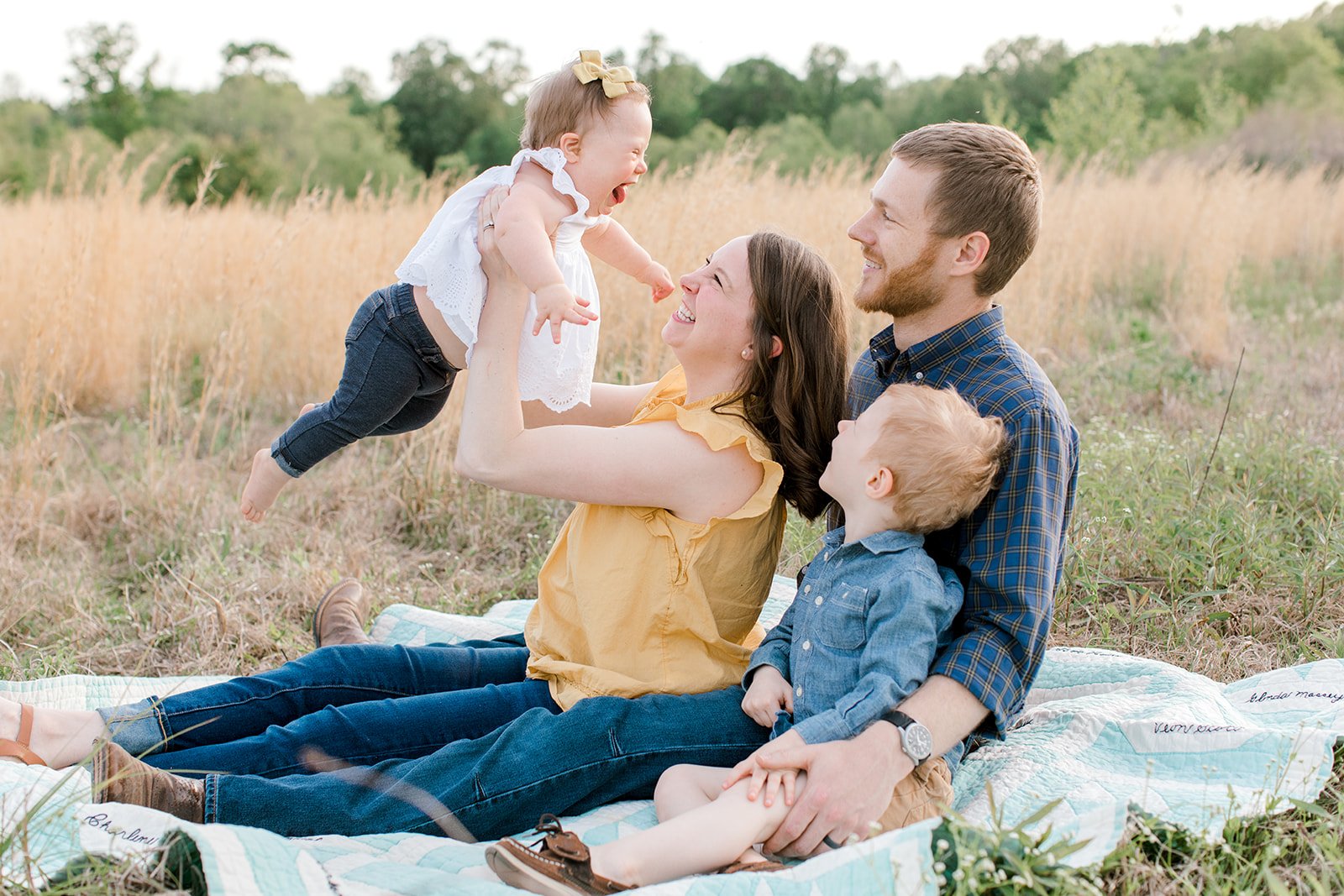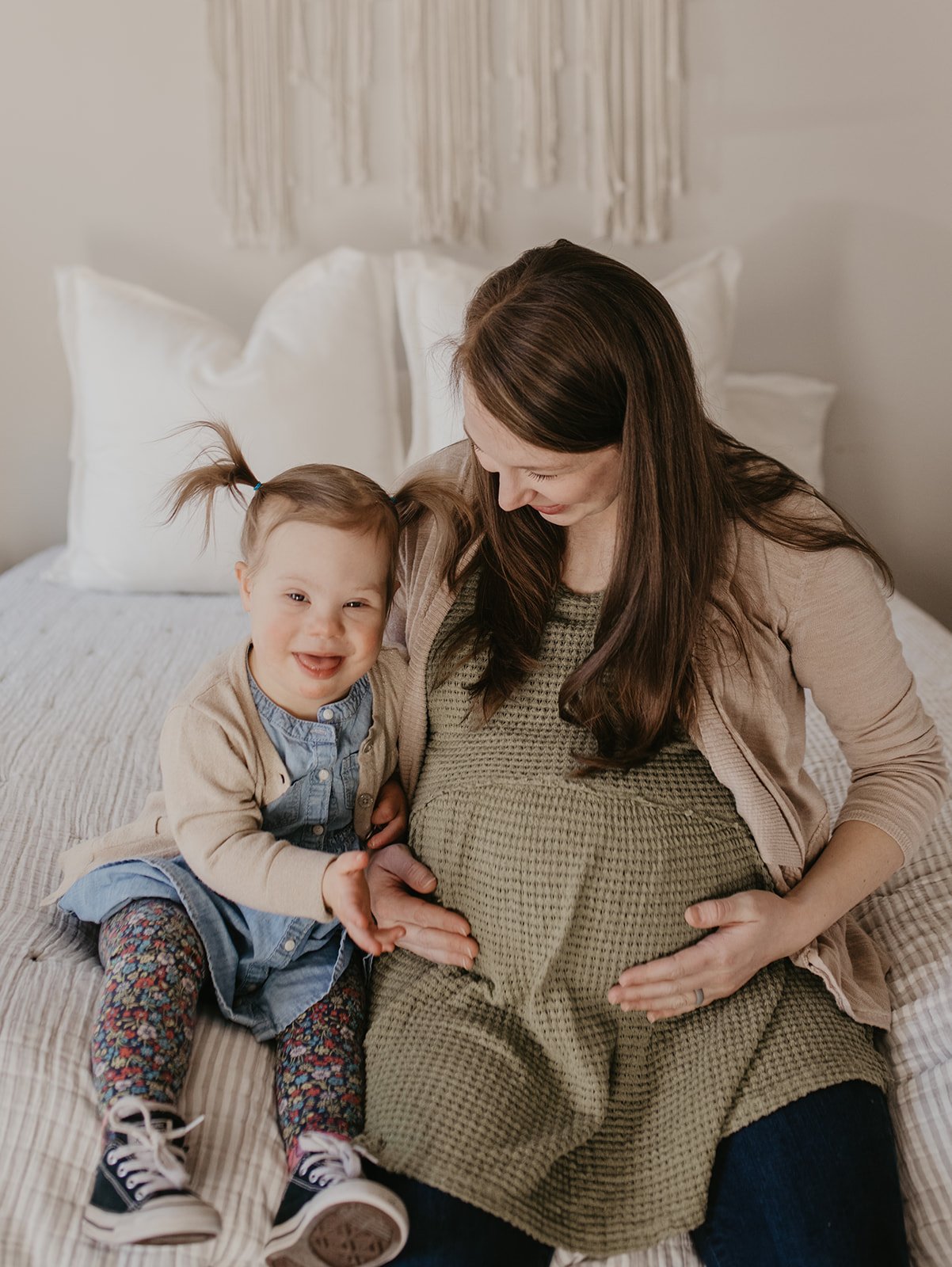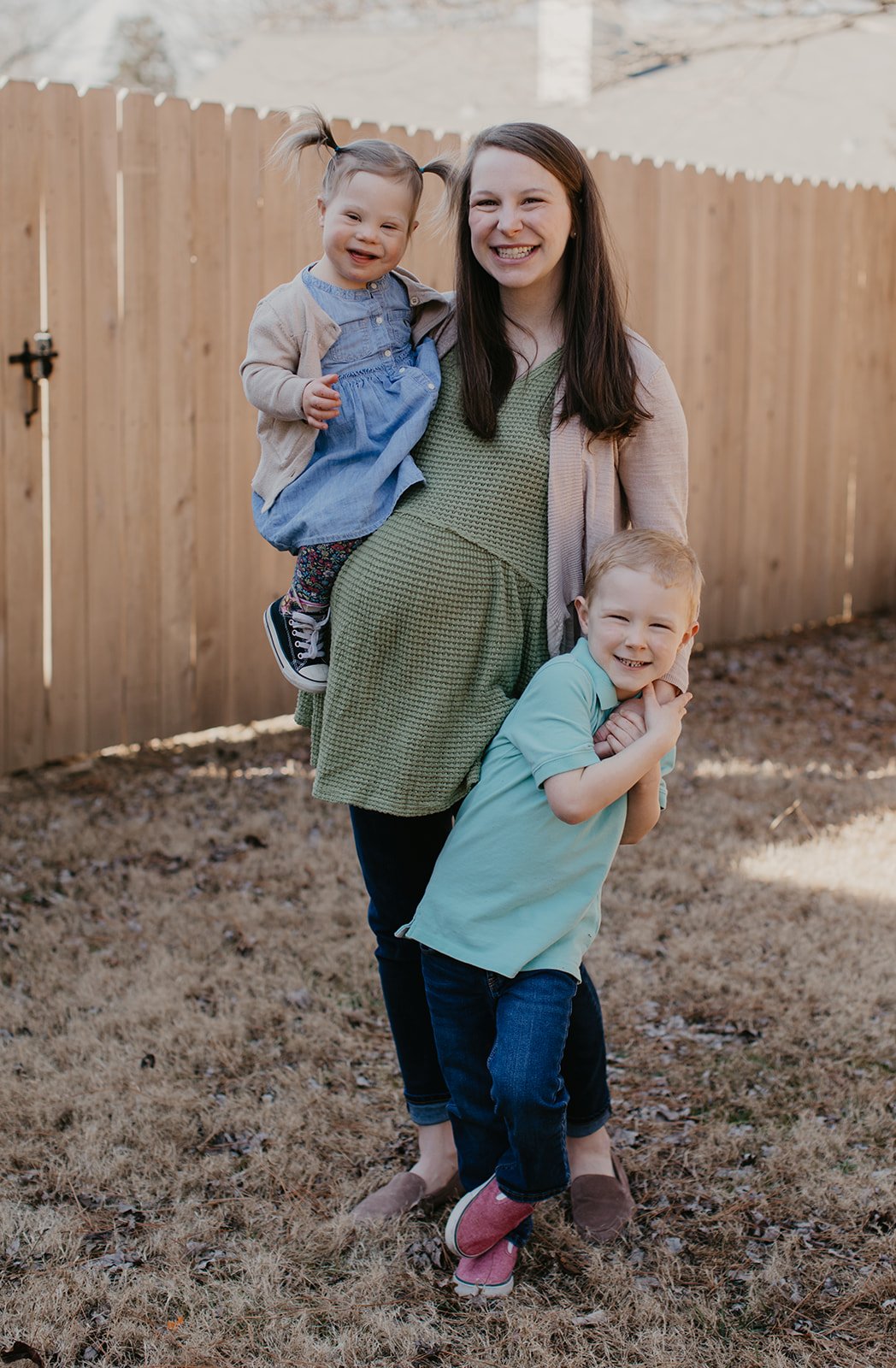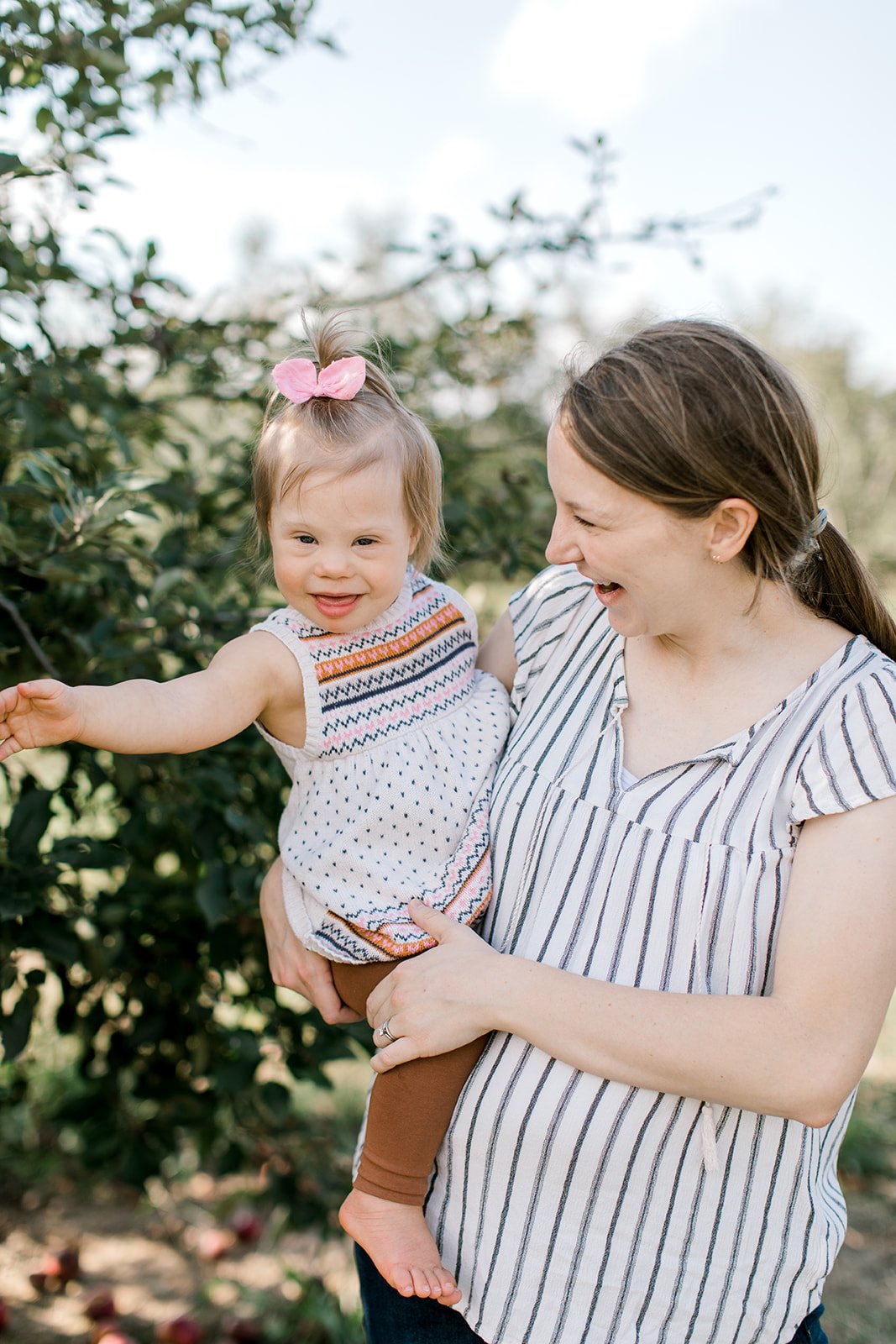Creating Belonging
BY LIBBIE BROWN | PHOTOS BY MEGG ALLISON
Featured in Vol 8, Issue 1: Jackson Grown
Our second baby, Eliza Joy, changed our lives the moment she entered our world in March of 2020. I will never forget looking over every detail and searching for clues the first time I held her in my arms. She had a head of dark hair, full cheeks, and an extra 21st chromosome. I was convinced as I took in all of her beautiful features, especially her almond shaped eyes, wide gap between her toes, and adorable little ears. Eliza was born with Trisomy 21, or Down syndrome.
I had an uncomplicated pregnancy, but after a minor abnormality was found during Eliza's anatomy scan, our doctor suggested a common prenatal screening to "rule out" any genetic conditions.
We never felt the relief most expecting parents experience when they receive their negative results for these genetic tests. Instead, we received the news that Eliza was positive for Trisomy 21. We were told the result wasn't a diagnosis, so we would need to go through more invasive and risky tests to know without a doubt before she was born. We declined the extra tests and began a season of waiting and trusting that our daughter was being knit together with a purpose.
We were not strangers to the disability community. I had grown up around children with disabilities, had chosen to study music therapy in college to work with individuals with disabilities, and had served in that setting for three years before starting a family. However, the circumstances are different when you're the parent, and it's your child who is going to need additional support, face challenges, and battle the stigmas of a diagnosis. We could only see the hard days ahead and all the what-ifs of the future. Would we be good parents to a child with a disability? What if she has significant health needs? How will this affect our son? If we could have seen a glimpse of the last two years of our lives during that time, our worries and fears would have melted into gratitude for the complete gift of raising our daughter, full of pure joy and feisty determination.
With the help and encouragement from our community of family, close friends, and our church body, our initial fears and doubts began to fade. Our people rallied behind us and supported us in specific ways as we waited to welcome Eliza into our family, with or without an extra chromosome. We were connected with two women, now dear friends, who have children with Down syndrome in the weeks before Eliza was born to ask questions and see what life actually looks like on the other side of a diagnosis. It was a relief to know we were not alone and others had walked this path before us. Even with complications due to the pandemic, support and resources from the community continued after Eliza was born. Throughout the first two years of her life, countless members of the larger Jackson community, including doctors, early intervention specialists, and therapists, poured their gifts and time into Eliza and our family as we sought out every avenue to help her thrive. Our journey would have looked markedly different had we been left to figure out the details on our own.
Our expectations of life with our daughter had to shift the day we found out she had Down syndrome. While our family and future looks different than we envisioned, life with Eliza is far more "typical" than we anticipated and filled with more joy than we could have hoped. By moving through life at a slower pace and with a little more patience, we have adjusted our priorities for what truly matters and holds value. Just because something is difficult or takes more time does not mean it's bad or not worth the investment. Eliza shows us every day that overcoming obstacles is worth every extra therapy session or time practicing a skill that comes naturally to others. No one can predict Eliza's future, but as a community we can ensure that we are creating an environment where everyone, no matter the level of their abilities, can flourish and live a meaningful life.
There are days I worry about Eliza's future, the community she will grow up in, and the people she will surround herself with as she grows and becomes more independent. I will not always be able to fight all of her battles, but I can encourage those in our immediate community and Jackson as a whole to take up the fight for inclusion and kindness with our family. If you're a parent, I encourage you to have the hard, and maybe uncomfortable, conversations with your children regarding people with differences. Don't shy away from their questions, but honor their curiosity and tell them all the many wonderful things about serving and loving those who are different from us. Seek opportunities to surround yourself with others not like you and celebrate all the varieties of abilities and strengths in those you encounter. If you are in a position of authority in a workplace, consider employing people with disabilities. And if you see families like ours or individuals who move through the world differently than you out in public, smile or engage with them. Others will learn from your example, and it could spark them to be more inclusive and kind when they have an opportunity in the future. When we realize our responsibility in cultivating and protecting our community for one another, we offer a chance for everyone to belong.
Libbie Brown is a wife, mother to three littles, and creator in her home. Libbie moved to Jackson from North Texas almost 8 years ago and couldn't bring herself to leave the community she had found. She enjoys cultivating a love of learning, reading, and the outdoors with her children, as well as spending time with family and friends.







